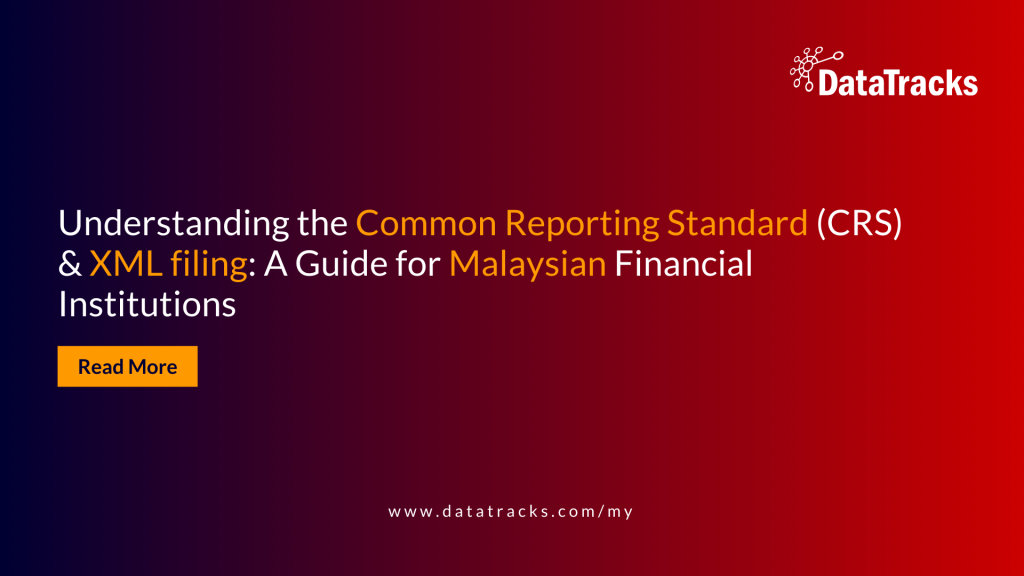Everything You Need to Know About the Companies Act 2016 for Successful Malaysian Business Compliance
Introduction
The Companies Act 2016 (CA 2016) is a pivotal piece of legislation that came into effect in Malaysia on January 31, 2017, replacing the Companies Act 1965. The new Act aims to modernize and streamline company law to meet the needs of a rapidly evolving business environment, while also enhancing corporate governance and ensuring greater transparency in financial reporting. The CA 2016 has brought about several key reforms that directly affect company formation, operations, governance, and restructuring.
This overview will focus on the key provisions of the CA 2016, its significant departures from the previous Act, and how these changes impact businesses, entrepreneurs, and legal professionals in Malaysia.
Key Areas of Reform
The CA 2016 introduces major reforms in the following areas:
- Company Formation
- Company Constitution
- Share Capital
- Directors and Officers
- Financial Reporting and Auditing
- Company Meetings
- Corporate Restructuring
- Winding Up of Companies
Company Formation
The CA 2016 simplifies the process of forming a company in Malaysia. Key provisions related to company formation include:
- Types of Companies: The CA 2016 recognizes various types of companies, such as private companies (Sdn Bhd), public companies (Berhad), companies limited by shares or guarantee, and unlimited companies. A notable change is the simplification of company categories, particularly for private companies, which now have fewer restrictions and requirements.
- Simplified Incorporation Process: The incorporation process has been streamlined, reducing the paperwork and eliminating the need for a company’s memorandum and articles of association. The role of the Registrar of Companies (SSM) is pivotal in overseeing and approving the formation process.
- Pre-Incorporation Contracts: Under the CA 2016, promoters of a company can now enter into pre-incorporation contracts on behalf of the company, though they may remain personally liable until the company adopts or ratifies the contract.
Company Constitution
Under the CA 2016, the concept of a company constitution replaces the outdated memorandum and articles of association.
- Flexibility in Company Structure: The constitution allows for more flexibility in how a company operates and its internal rules. It enables businesses to tailor their constitution to suit their needs, but still must comply with the statutory framework.
- Objects Clause: Unlike the previous Act, which included a mandatory objects clause stating the scope of a company’s business, the CA 2016 provides greater flexibility, with the company now free to conduct any legal business unless otherwise stated in the constitution.
Share Capital
The CA 2016 introduces significant changes regarding share capital:
- No-Par Value Shares: The Act removes the par value requirement for shares, simplifying the process of share issuance and providing companies with more flexibility in managing their share capital.
- Issuance of Shares: The authority to issue shares now lies with the company’s directors, who must follow proper procedures, and ensure compliance with any restrictions in the company’s constitution.
- Classes of Shares and Rights Issues: The CA 2016 allows companies to issue shares of different classes, each with different rights, and also provides a clearer process for varying the rights of existing shareholders.
- Capital Maintenance Rules: The rules regarding share buybacks, financial assistance, and dividend restrictions have been updated to provide greater flexibility and align with international standards.
Directors and Officers
One of the most important aspects of the CA 2016 involves the governance of companies through their directors and officers:
- Minimum Number of Directors: A company is required to have at least one director who resides in Malaysia. Public companies must have at least two directors who are ordinarily resident in Malaysia.
- Directors’ Duties and Liabilities: The CA 2016 clearly outlines the duties of directors, including fiduciary duties, the duty of care, and compliance with the company’s constitution. Directors can be held personally liable for breaching these duties.
- Indemnification of Directors: The Act allows for indemnification of directors, but with specific limits, particularly in cases of negligence or fraud.
- Role of the Company Secretary: The appointment of a company secretary is mandatory for certain companies. The secretary must be a qualified individual with specific duties, including ensuring compliance with the law and assisting the board in corporate governance.
Financial Reporting and Auditing
The CA 2016 enhances the transparency and accountability of financial reporting:
- Financial Statements: Companies must prepare and submit annual financial statements in accordance with the applicable financial reporting standards. The financial statements must be filed with the Registrar within 6 months of the end of the financial year.
- Audit Requirements: Companies must appoint an auditor to audit their financial statements unless they qualify for an exemption. Small private companies, meeting certain criteria, may be exempt from the requirement to have an audit.
- Auditor Independence: The Act emphasizes the need for the auditor to be independent of the company and clearly outlines the auditor’s responsibilities.
Company Meetings
The CA 2016 makes provisions for various types of company meetings, including:
- Annual General Meetings (AGMs): Public companies are required to hold an AGM within 6 months of their financial year-end, while private companies may not be required to hold an AGM.
- Notice Requirements: Companies must give adequate notice for meetings, detailing the agenda and proposals.
- Written Resolutions: Private companies can pass resolutions in writing instead of holding formal meetings, which is a convenient method for businesses.
Corporate Restructuring
The CA 2016 includes provisions for corporate restructuring, including:
- Statutory Corporate Restructuring Scheme: This allows financially distressed companies to undergo a formal restructuring process to avoid insolvency.
- Corporate Voluntary Arrangement (CVA) and Judicial Management: These processes are designed to help struggling companies recover by restructuring their debt and operations.
Winding Up of Companies
The process for winding up companies has been simplified and modernized:
- Voluntary vs. Compulsory Winding Up: Companies can be wound up voluntarily by the members or creditors, or compulsorily by the court if they are unable to pay their debts.
- Grounds for Compulsory Winding Up: Common grounds include failure to pay debts and the company’s insolvency.
- Secured Creditors: Secured creditors have priority in the distribution of assets in a winding-up scenario.
Conclusion
The Companies Act 2016 represents a significant update to Malaysian company law, offering a modern and flexible legal framework for businesses. The reforms enhance corporate governance, simplify the company formation process, and provide clearer guidelines on the roles and responsibilities of directors and officers. While the Act offers greater flexibility, it also imposes new requirements that companies must comply with to avoid legal and financial risks.
For companies navigating these changes, particularly in areas like financial reporting, the introduction of XBRL (eXtensible Business Reporting Language) for financial statements filing is a key development. The Malaysian Business Reporting System (MBRS), which is mandatory for submitting financial reports to the Suruhanjaya Syarikat Malaysia (SSM), requires companies to convert their financial statements into XBRL format.
This is where DataTracks can assist. DataTracks is a leading provider of XBRL solutions, offering MBRS XBRL Filing solutions to help businesses comply with the SSM’s filing requirements. Their software simplifies the conversion process, ensuring that companies’ financial statements meet the necessary standards for submission. With DataTracks, businesses can ensure that their filings are accurate, compliant, and timely, reducing the risk of errors and penalties.
Given the complexities of compliance with the CA 2016 and the evolving regulatory landscape, partnering with a reliable service provider like DataTracks can help businesses navigate these requirements seamlessly. It’s essential to seek professional advice and support to ensure full compliance and avoid any potential legal challenges.
FAQs on Companies Act 2016
Q: What is the Companies Act 2016?
A: The Companies Act 2016 is a comprehensive piece of legislation governing company law in Malaysia. It replaced the Companies Act 1965 and came into effect on January 31, 2017.
Q: What are the key changes and updates compared to the previous Act?
A: The Companies Act 2016 introduces several key reforms, including:
- Modernized and streamlined company formation and registration processes
- Enhanced corporate governance requirements
- Greater flexibility in company operations
- Emphasis on transparency and accountability
Q: How does the Companies Act 2016 affect company registration?
A: The Act simplifies the company registration process and introduces new company types, such as the “Company Limited by Guarantee.”
Q: What are the new corporate governance requirements under the Companies Act 2016? A: The Act strengthens corporate governance by introducing new requirements for directors’ duties, independent directors, and related party transactions.
Q: How does the Companies Act 2016 impact financial reporting obligations?
A: The Act introduces new financial reporting standards and requirements for companies, including the preparation of audited financial statements.
Q: What are the responsibilities and liabilities of directors under the Companies Act 2016?
A: Directors have increased responsibilities and liabilities under the Act, including a duty to act in the best interests of the company and to exercise reasonable care and skill.
Q: What are the roles and responsibilities of a company secretary under the Companies Act 2016?
A: The company secretary plays a crucial role in ensuring compliance with the Act and providing guidance on corporate governance matters.
Q: What are the potential penalties for non-compliance with the Companies Act 2016?
A: Non-compliance with the Act can result in significant penalties, including fines and imprisonment for directors and officers.
Q: Where can I find professional assistance for navigating the Companies Act 2016?
A: You can seek professional assistance from legal and accounting firms specializing in company law compliance.
Q: What are the major differences between the Companies Act 2016 and the 1965 Act?
A: The 2016 Act introduces significant changes to company law, including new company types, corporate governance requirements, and financial reporting standards.
Q: Have there been any recent amendments to the Act and how do they affect businesses?
A: The Companies Act 2016 has undergone several amendments since its enactment. It is important for businesses to stay informed about these changes to ensure compliance.



